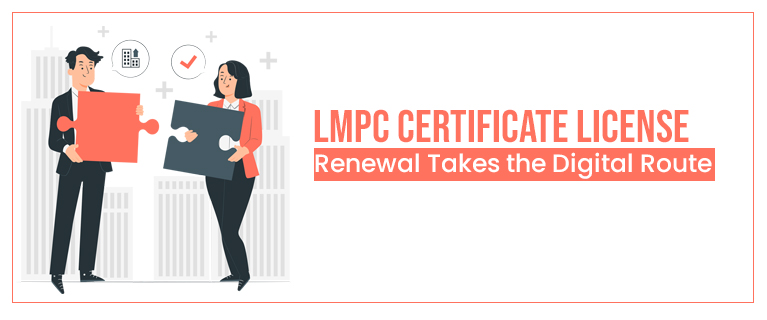Applying for LMPC Import License Online
In the dynamic landscape of international trade, businesses engaging in the import and distribution of packaged goods are often required to obtain specific certifications to ensure compliance with legal metrology standards. One such crucial certification is the Legal Metrology Packaged Commodity (LMPC) Import License. In this blog, we'll explore the essential steps and considerations for businesses seeking to navigate the process of applying for an LMPC Import License.
Understanding LMPC Import License:
The LMPC Import License is a certification that attests to a business's adherence to legal metrology regulations when importing and distributing packaged goods. This certification is particularly critical in global trade, where standardized measurement and packaging practices are essential for fair commerce and consumer protection.
Read also this -: LMPC Certificate License Renewal Takes the Digital RouteKey Steps for Applying for LMPC Import License:
Before initiating the application process, businesses should conduct thorough research on legal metrology regulations in both the exporting and importing countries. Understanding the specific requirements and standards will facilitate a smoother application process.
Determine the relevant regulatory authorities responsible for overseeing legal metrology and import licensing in the destination country. This may involve contacting government agencies or departments dedicated to metrology or trade.
For businesses operating in a foreign market, it's advisable to engage a local representative or consultant well-versed in the legal metrology regulations of the importing country. This professional can provide invaluable guidance and ensure accurate submission of documents.
The LMPC Import License application typically requires a comprehensive set of documents. This may include proof of product compliance, details of the manufacturing process, packaging specifications, and any other documentation mandated by the regulatory authority.
Provide accurate information about the business, the imported products, and details regarding compliance with legal metrology standards. Be meticulous in completing all sections of the form to avoid delays in processing.
Submit the completed application along with the required documents to the designated regulatory authority. Some countries may have online submission portals, while others may require physical submissions. Adhere to the specified submission guidelines to ensure a smooth process.
Once the application is submitted, it undergoes a review process by the regulatory authority. This may involve inspections or audits to verify compliance. Engage proactively with the regulatory authority during this phase, addressing any inquiries promptly.
Upon successful review and approval, the business will receive the LMPC Import License. This document serves as proof of compliance with legal metrology standards and enables the lawful import and distribution of packaged goods in the target market.
Considerations for Success:
1. Stay Informed:
Keep abreast of changes in legal metrology regulations, both domestically and internationally. Regularly update internal processes to align with evolving standards.
2. Maintain Transparency:
Transparency is crucial in the application process. Provide accurate information and promptly address any queries from the regulatory authority to build trust and facilitate a smoother approval process.
Read also this -: Decoding the LMPC Registration3. Collaborate with Experts:
Engage with legal metrology consultants or experts who can provide guidance throughout the application process. Their knowledge and experience can prove instrumental in navigating regulatory complexities.
Conclusion:
Applying for an LMPC Import License is a strategic step for businesses engaging in international trade. Beyond meeting regulatory requirements, this certification underscores a commitment to fair trade practices and consumer protection. By understanding the process, collaborating with local experts, and maintaining a proactive approach, businesses can successfully obtain an LMPC Import License, ensuring the seamless and compliant importation of packaged goods in the global marketplace. As legal metrology standards continue to evolve, businesses equipped with this certification are better positioned for sustainable success in the competitive landscape of international trade.




Comments
Post a Comment